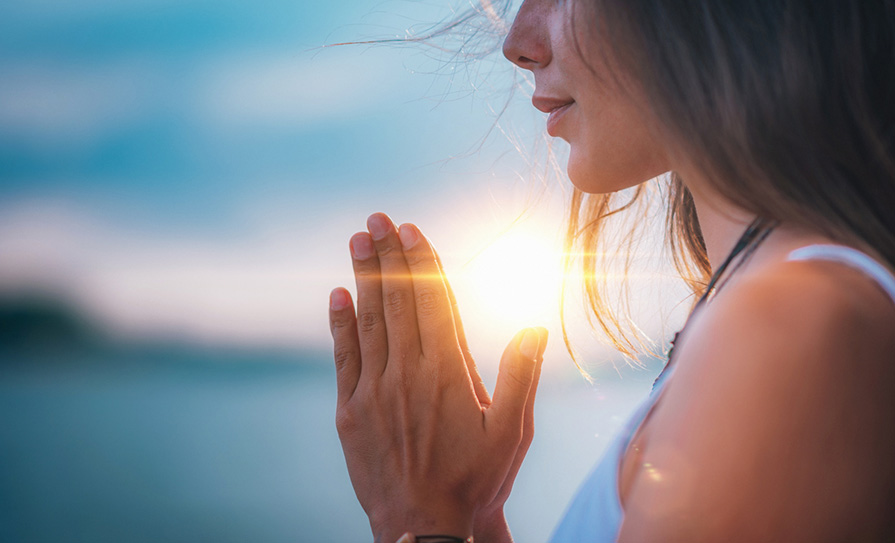
Perhaps the most difficult thing we can do this Christmas is maintain peace in our hearts
Christmas will be challenging this year as many people grapple with the horror of the escalation of the war in the Middle East. As we undertake our usual preparations, it is impossible not to feel the sadness that hovers within the collective consciousness or to grieve the loss of innocent lives of people just like us. Just 45 miles from Bethlehem, families and communities are being destroyed while those who survive are sentenced to lives of sorrow and pain. These are the images that come to mind this year when I hear the strains of Little Town of Bethlehem or Oh, Holy Night. The melodies are punctuated by gunfire, rocket shells, and the sounds of people screaming.
It is impossible to comprehend that people like ourselves can inflict such suffering. It is even harder to understand that there is no way to stop the devastation, to know that even as I write, the numbers of dead and wounded are rising.
As a child, my parents insisted that we always consider the people less fortunate than ourselves: The sick, the homeless, the lonely. They reinforced this repeatedly at Christmas time, believing, I think, that this would make us more appreciative and grateful grown-ups. I never understood the rationale for thinking about other people’s suffering when I could not do anything to relieve it. To my child’s mind, it was the same flawed logic that led adults to insist that children eat everything on their plates because less fortunate children were starving in Africa. These (un)wise pronunciations only made me feel powerless and guilty for being born into favourable circumstances and being able to enjoy the fruits of my parents’ labour.
Today, when I turn on the news or pick up a newspaper, I am struck by that same helpless feeling alongside low-level guilt that I can work and play and occupy myself with multiple trivial concerns while at the same time, others, no different from me, are cold, hungry, and frightened. While innocent people fear for their lives or wait impotently as multiple negotiating parties decide their fate. While remote powers decide who will be traded and who will remain in captivity.
I do not wish to write about the war as I am not qualified to do so. Neither do I think that a primer on the history of the Middle East would make me more capable. It is a war that, for me, defies opining or polarising. The scale and depth is too vast. No new information or insight could help me understand why people treat each other in such a manner. There is no justification for such horror. As Kurt Vonnegut said in support of his son’s conscientious objection to the war in Vietnam, “There is no hope in war.” War does not solve anything. It destroys everything in its path and leaves a legacy of fear, hatred, and revenge. Because of it, the world is a lesser place; we are all poorer in spirit while others suffer.
Of course, we are not the first to live through such atrocities. Families and generations still suffer the effects of World War I and II. Unfortunately, humans do this to each other with regularity. Whether we like it or not, it is part of who and what we are. As Terence, a playwright in the Roman Republic, is purported to have said, “I am human and I think nothing human is alien to me.” So perhaps, under different circumstances, any one of us could commit atrocities. In other circumstances, with our backs against the wall, to protect our birthright, our families or our future. Perhaps, unbelievable and all as it seems, any one of us could be driven to commit terrible deeds. I try to keep this in mind as I prepare to celebrate the holiday. How would I react to constant conflict, threat, and fear? I hope I never have to find out.
So, perhaps, the best that we can do while enjoying peace and freedom is to be respectful of and grateful for our good fortune. To light the dark evenings with Christmas lights, sing Christmas carols with our neighbours and friends, and send compassionate wishes to all people everywhere, victims and the perpetrators, rich and poor, sick and healthy.
Perhaps the most difficult thing we can do this Christmas is maintain peace in our hearts and in our corner of the world. Show tolerance for those who need refuge and respect the humanity in all.
So, as we come to the end of another year, thank you for your attention throughout the year and for all your kind comments. I wish you and yours a happy and peaceful Christmas, wherever you are, and whatever your circumstances. Nollaig faoi shéan agus faoi mhaise.





Leave a Reply
You must be logged in to post a comment.